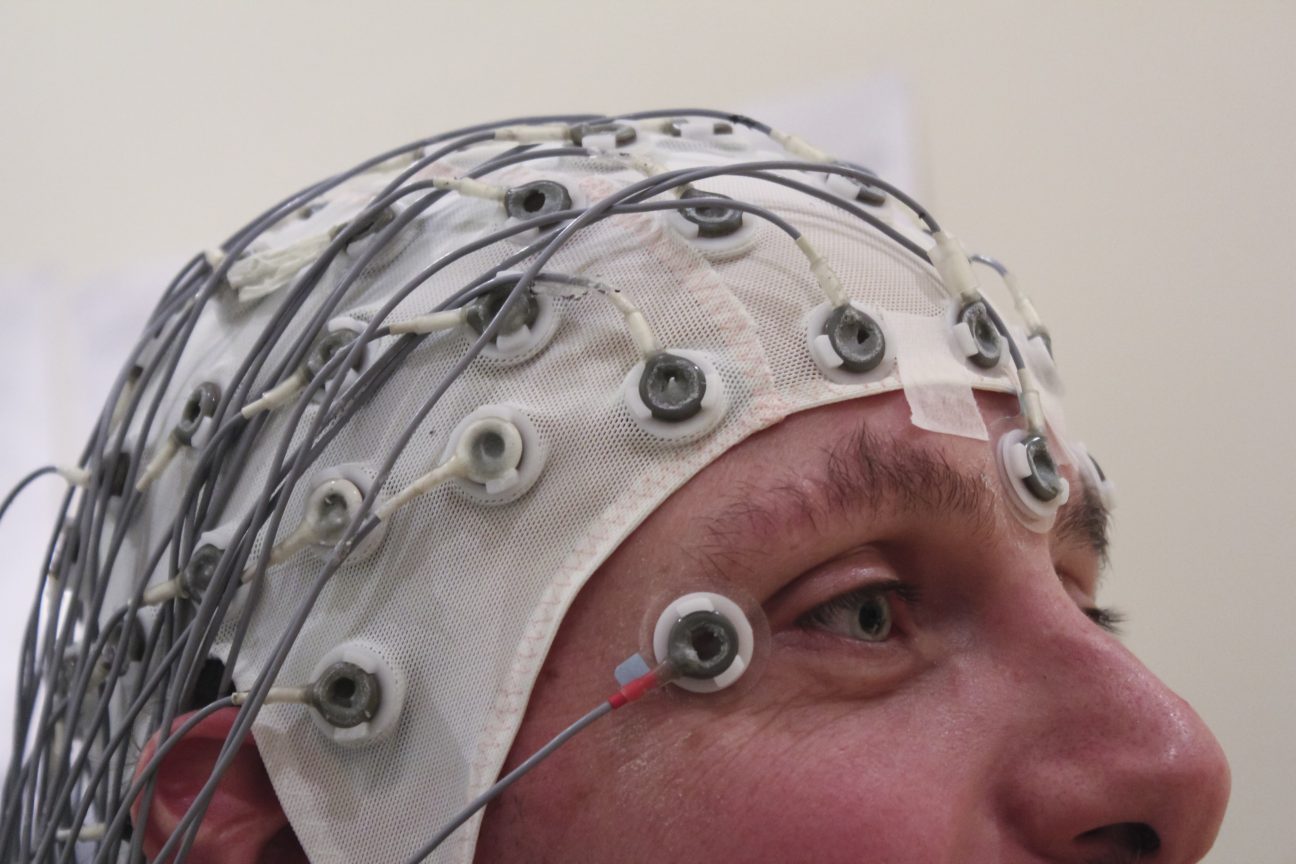Mind-wandering may be the cause of your unhappiness

- Our minds seem to wander to escape unpleasant emotions.
- But some studies suggest that mind-wandering isn’t a consequence of our unhappiness; it’s the cause.
- Learning to strengthen our attentional systems can help us keep our minds in the present moment.
Your mind is a wanderer, and it’s not alone. As many as 96% of Americans claim to experience mind-wandering daily, and studies have shown the habit to be common across cultures. So common that some have theorized it to be the brain’s default process.
If that’s the case, then why is mind-wandering so strongly associated with unhappy experiences? Think about it: You flee a boring college lecture by escaping into a favorite daydream. You avoid a stressful project by planning your weekend getaway. And you zone out when a friend raises that all-too-familiar argument.
Whether the consequence of boredom, stress, anger, or a host of other alienating emotions, our minds seem to wander to escape the unpleasant. Of course, such escapism rarely solves the task or problem at hand, leaving us more despondent when we return from our mental travels.
But according to some research, this understanding of mind-wandering has it backwards. Your mind-wandering isn’t your attempt to sidestep unhappy experiences. It’s the cause of your unhappiness.
In search of wandering minds
In a 2010 Science paper, psychologist Matthew Killingsworth — then a doctoral student at Daniel Gilbert’s happiness lab at Harvard University — sought to determine the emotional consequences of mind-wandering in everyday life.
“My research is driven by the idea that happiness may have more to do with the contents of our moment-to-moment experiences than with the major conditions of our lives,” Killingsworth wrote in Greater Good Magazine. “It certainly seems that fleeting aspects of our everyday lives — such as what we’re doing, who we’re with, and what we’re thinking about — have a big influence on our happiness, and yet these are the very factors that have been most difficult for scientists to study.”

The study had participants download a phone app that would ping them randomly throughout the day to ask questions like “How are you feeling?” and “What are you doing right now?” Activities included options such as working, walking, eating, praying, talking, playing, and doing nothing special.
To better understand mind-wandering, the researchers assigned 2,250 participants a mindfulness question: “Are you thinking about something other than what you’re doing?” If a participant answered yes, they could also select whether their task-irrelevant thoughts were pleasant, neutral, or unpleasant.
Mind-wandering misery
After analyzing the data, Killingsworth and his team came to three conclusions. First, people’s minds wander a lot more than we may think. By the researchers’ estimates, mind-wandering accounts for half of our waking hours, and it made little difference what kinds of activities the participants engaged in. The only activity that consistently kept people’s minds locked in the present moment was, naturally, sex.
The second takeaway: People were less happy when their minds wandered, and this mood-depressant held true across the board. Even when performing mindless tasks, like commuting to work or doing the dishes, the participants were happier when they were focused. Pleasant mind-wanderings didn’t improve happiness levels either.
Finally, time-lag analyses showed a strong relationship that mind-wandering preceded unhappiness. But there was little evidence for the reverse relationship (unhappiness now followed by a mental getaway).
“Although negative moods are known to cause mind wandering, time-lag analyses strongly suggested that mind wandering in our sample was generally the cause, and not merely the consequence, of unhappiness,” the researchers wrote.
All told, what people were thinking, not what they were doing, had a much greater influence on their happiness. As Matthew Killingsworth & Daniel Gilbert conclude:
A human mind is a wandering mind, and a wandering mind is an unhappy mind. The ability to think about what is not happening is a cognitive achievement that comes at an emotional cost.
Further research needed
Of course, no one study cements scientific consensus. Since Killingsworth and Gilbert’s study, others have looked at mind-wandering and its effects on mood. Some of those papers have supported Killingsworth and Gilbert’s findings. Other papers have dissented, claiming unhappiness begets mind-wandering. Others have even suggested that it’s not a question of whether the mind wanders but where it wanders to.
It’s a difficult problem to crack, and we’ll have to wait for more data to determine in what direction the causal chain flows (if any).

Not all minds that wander are (necessarily) lost
Until then, it’s worth considering why evolution paired the cognitive achievements of mind-wandering with such a heavily emotional cost. Because those achievements can be many. Mind-wandering has been shown to aid in creativity, learning from past mistakes, playtesting future plans, and building our narrative identities.
For example, in a study published in the Proceedings of the National Academy of Sciences, researchers scanned participants’ brains with an electroencephalogram (EEG). They found that when participants’ minds wandered from the task at hand — in this case, an arrow-matching game — their brains showed alpha wave activity in the prefrontal cortex.
Alpha waves are linked to the generation of novel ideas, yet they don’t appear when we are focused. In other words, creativity seems to prosper from mind-wandering just as falling asleep does. That is, if you focus intently on the task, you make it more difficult.“Being on task and focused are important qualities. But there are times when a freely wandering mind can also be beneficial,” Julia Kam, a cognitive neuroscientist and study co-author, told Inverse. “In letting your mind wander, it potentially frees up attentional resources and also the structured way of thinking that limits creative outputs.”
There and back again, an attentional tale
What can we take from these findings? Mind-wandering has its advantages, and we should make time for it. However, when you aim to focus on a specific task and distractions, whether external or internal, pull your mind toward irrelevant thoughts, your mood may sour. Maybe that’s because you feel you’ve let yourself down, or you’ve made the task more difficult, or your ruminations themselves proved depressive and anxiety-inducing.
Whatever the case, this is how your mind works. It’s not a question of being weak-willed or prone to distraction. As neuroscientist Amishi Jha writes in her book, Peak Mind:
“No matter how much I tell you about how attention works and why, and no matter how motivated you are, the way your brain pays attention cannot be fundamentally altered by sheer force of will. I don’t care if you’re the most disciplined person alive: it will not work. Instead, we need to train our brains to work differently. And the exciting news is: at long last, we’ve actually figured out how.”
To strengthen our attentional systems, Jha recommends mindfulness training. Her research shows that people who undergo mindfulness training for 12 minutes a day enjoy benefits in objective measures of attention and mood. Those who practiced for less did not.
This suggests that, while we’ll never keep our minds tethered to the objects of our attention, we can improve our ability to keep our minds and task-relevant thoughts. And when it’s appropriate, we can let our minds wander and think freely — making it the relevant task, which research shows people enjoy more than they thought they would.
“Minds wander. It’s a natural thing that the brain does,” Jha told us in an interview. “When our mind moves away, gently return it back. Simply begin again.”
Learn more on Big Think+
With a diverse library of lessons from the world’s biggest thinkers, Big Think+ helps businesses get smarter, faster. Request a demo for your organization today.





